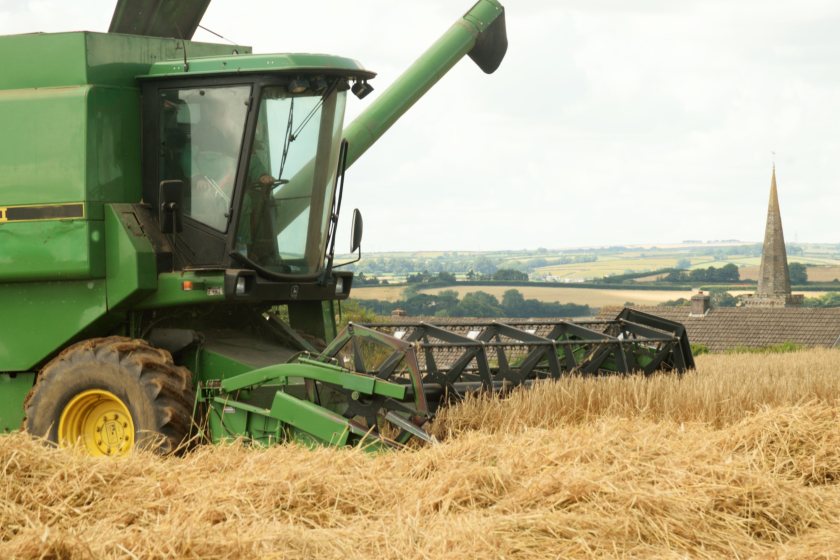
New analysis suggests that Britain is heading for one of worst harvests on record, following record breaking rain last winter that has reduced yields.
This year’s harvest for key crops is set to be one of the worst three since detailed records began in 1983, just behind 2020 and 2001.
According to the analysis of government data, the total harvest is set to be down by over 13%, or three million tonnes, on the five-year average.
The wheat harvest in England alone is estimated to be more than 2.2m tonnes, representing a 18% decline compared to 2023.
The Energy and Climate Intelligence Unit (ECIU) used provisional data on crop areas for wheat, winter and spring barley, oats and oilseed rape combined with yield forecasts from AHDB to make the estimations.
Tom Lancaster, farming analyst at the ECIU, said it had been 'a year to forget' for many farmers across the country.
"The recent benign summer has failed to make up for six months of seemingly endless rain over the winter, the effects of which are now becoming apparent," he said.
“More than most, farmers are on the front line of climate change, and this is what that looks like. Extreme weather is already feeding through to higher food bills and a greater reliance on imports."
It comes as the confidence of farmers is at an all-time low which could lead to a decrease in food production, the NFU recently warned.
The union's annual farmer confidence survey, released in May, showed that short and mid-term confidence is at its lowest since records began in 2010.
Martin Lines, farmer and chief executive of the Nature Friendly Farming Network said he had never known a year like this one.
"I don’t want to see another like it again," he said, “Extreme weather is making farming harder and it’s the main threat to our food security.
"Farmers need support in preparing for and coping with droughts and floods."
